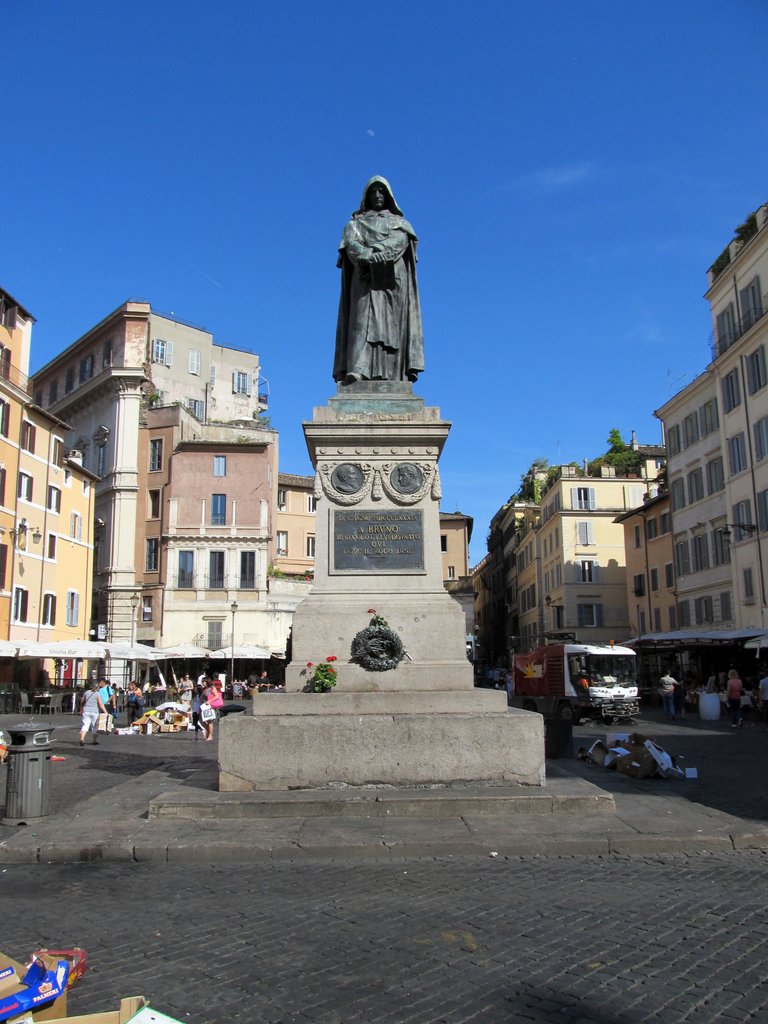History is replete with stories of people who met their demise simply because they refused to "bend the knee" to the modus operandi of that time.
Socrates, whose execution in 399 BCE stands as perhaps the most philosophically significant martyrdom in Western thought.
When faced with charges of "corrupting the youth" and "impiety" in Athens, he could have saved himself. Since the authorities would have been content with his silence and exile from Athens.
During his trial, Socrates not only defended his philosophical mission but further provoked the jury by suggesting that instead of punishment, he deserved to be rewarded as a public benefactor.
After conviction, he refused to propose a alternative to the death penalty, maintaining that "the unexamined life is not worth living."
And it is said that his final days were spent discussing philosophy with his students while waiting to drink the hemlock. He valued truth over mere survival?
Nearly two millennia later, Giordano Bruno faced a similar choice.
As a Dominican friar in the 16th century, Bruno proposed ideas that were quite revolutionary for his time. Some of them included the concept of an infinite universe with multiple worlds and the separation of science from religious doctrine.
The latter is still debated to this day with regards to separating the two but given how things have turned out today, an eventual separation did happened.
Rightly so, the Roman Inquisition gave him multiple opportunities to recant his cosmological theories over six years of imprisonment.
A simple renunciation would have spared him, but this revolutionist was unyielding and remained adamant: "I neither ought to recant, nor will I."
As if history was repeating itself in a different from, On February 17, 1600, he was burned at the stake in Rome's Campo de' Fiori.
Today, a statue stands in that very square, marking the spot where he chose truth over life itself.
A Peculiar Observation
Within Maslow's hierarchy of needs, I encountered an interesting paradox when examining cases like Socrates and Bruno.
This hierarchy suggests that physiological needs and safety form the foundation upon which all other needs are built, but rather such historical examples show us instances where individuals elevated their highest-order needs - self-actualization and self-transcendence - above their very survival instincts.
I didn't know previously that the pursuit of truth, authenticity, and moral conviction (traditionally placed at the apex) becomes so fundamental to one's identity that it supersedes even the basic need for survival.
I think there are really few reasons that a person will willingly die for, without direct personal benefit or immediate reward. These typically include: protecting loved ones, defending deeply held beliefs or values, preserving freedom for future generations, etc.
Of course, this is all within the realm of man's search for truth, having the conviction to stand firmly for what one believes to be right, even in the face of overwhelming opposition or mortal danger.
Evolution Of Sacrifice
In our current age of "moral relativism" and instant gratification, the notion of sacrifice seems to have evolved, in that today's sacrifices more or less manifest in more nuanced ways compared to the clear-cut choices between truth and survival of previous ages.
Take for example, a famous whistleblower of our time. Edward Snowden's exile is a modern variant of choosing truth over comfort, though the stakes and contexts are different from historical counterparts.
For the most part, Snowden is still navigating the consequences of his choice – a modern-day exile who, like Bruno, found himself at odds with powerful institutions.
Although not facing physical execution, he experiences a different kind of death, which is the inability to return home, the constant scrutiny, and the polarized debate about whether he's a traitor or a hero(definitely a hero in my view).
Once conviction is set into motion, it often creates an irreversible path where backing down becomes more costly to one's sense of self than pressing forward.
When society demands we choose between maintaining comfortable silence or speaking uncomfortable truths..
Those who choose the latter will always find themselves, as history shows, paying the ultimate price in whatever currency their era demands.
In this context, uncomfortable truth is basically something that the established majority doesn't want to acknowledge because it threatens existing power structures, cultural norms, or deeply held beliefs.
Of course, I'll also add that you can speak your uncomfortable truth behind a screen, remain anonymous and bootstrap your way to creating change through digital platforms - a luxury that wasn't available to historical truth-tellers like Socrates and Bruno.
Though this modern shield of anonymity raises its own ethical questions about accountability and conviction.
What a time to be alive..
Thanks for reading!! Share your thoughts below on the comments.



